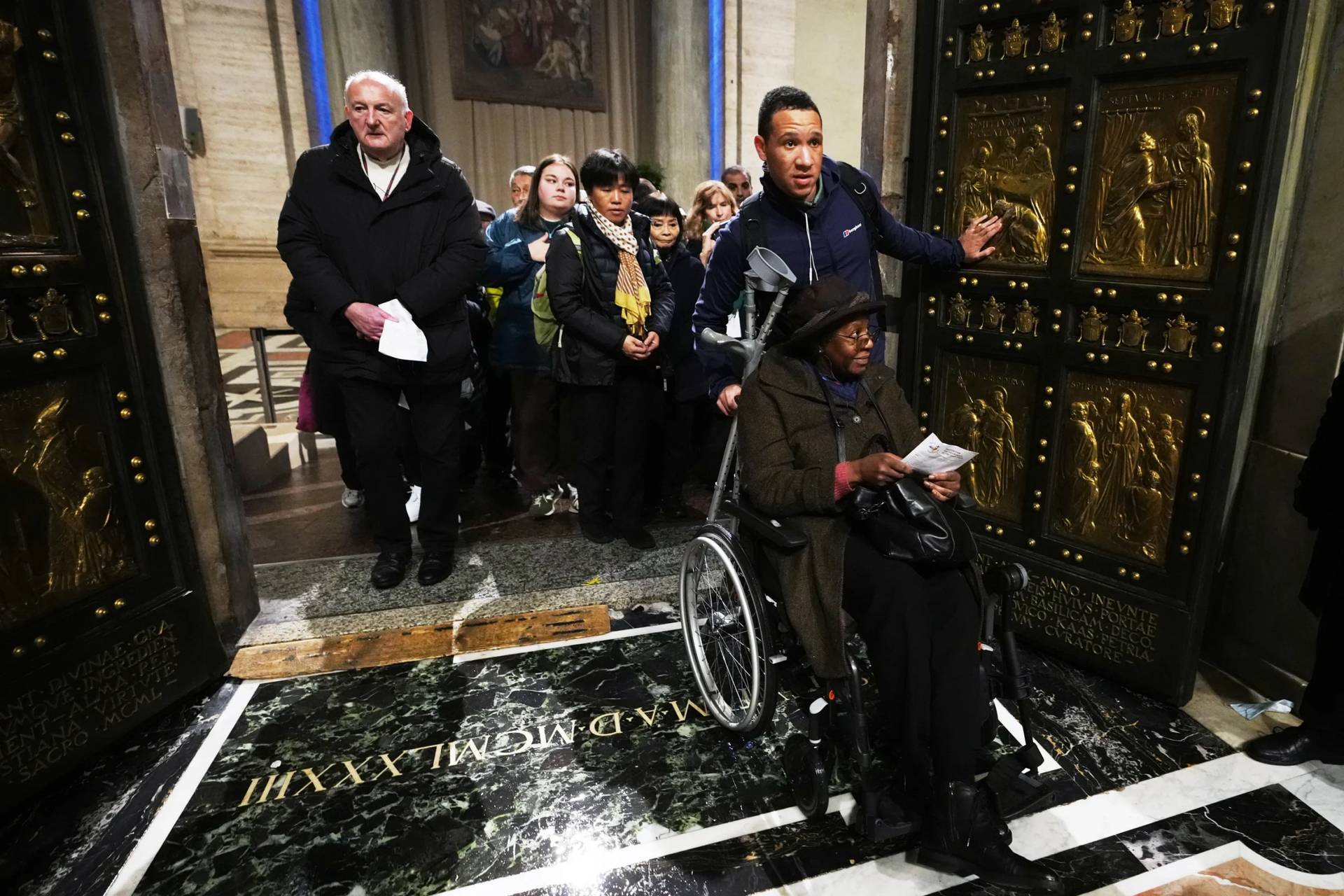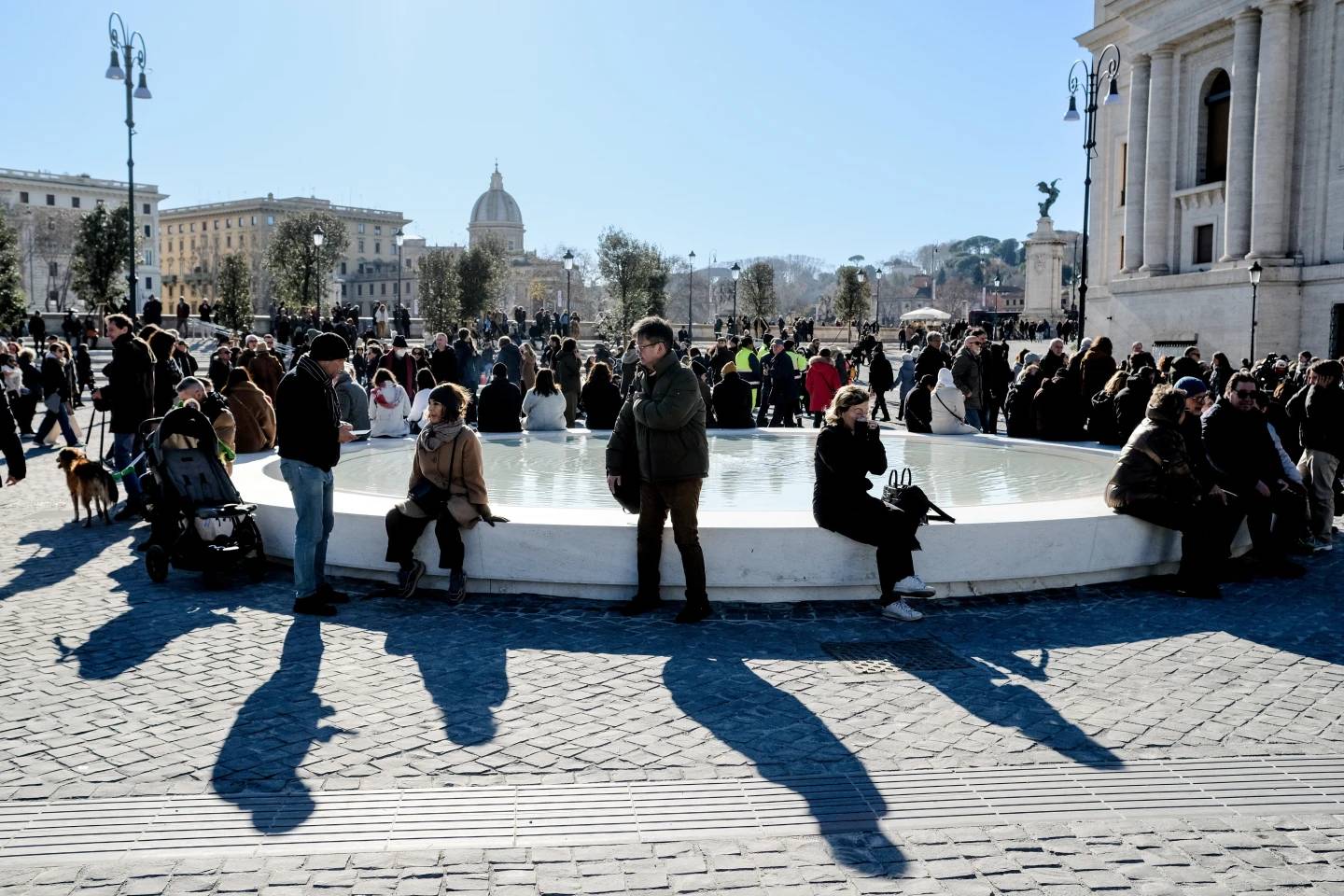ROME – Pope Francis is known for his attention to the peripheries, which might suggest that Europe isn’t a priority for him. However, a conference taking place in Rome this weekend confirms the Old Continent, which has its own kind of peripheries today, is never very far out of his field of vision.
Put together by COMECE, the Commission of the Bishops’ Conferences of the European Community, the Oct. 27-29 initiative is called “Dialogue ‘(Re)Thinking Europe’,” and it will take place inside the Vatican, in a room called the New Synod Hall, located a stone’s throw away from where Francis lives.
In addition to the Argentine pontiff, who will address the 350 participants on Saturday, the list of speakers include several heavy-hitters, such as the Vatican’s Secretary of State, Italian Cardinal Pietro Parolin, and German Cardinal Reinhard Marx, President of the COMECE.
On the secular side, the all-star lineup includes Pat Cox and Antonio Tajani, former and current President of the European Parliament; Sylvie Goulard, former French Defense Minister; and Frans Timmermans, First Vice-President of the European Commission and the man responsible for Article 17 of the Treaty on the Functioning of the European Union, which establishes a framework for the EU’s dialogue with religions.
Yet, as EU Ambassador to the Holy See Jan Tombiński put it, they’re not “coming in their capacity as leaders, but as concerned public persons who might contribute by their reflection.”
The conference is part of a broader effort by the Catholic Church throughout the continent to add its voice in support of unity, a particularly urgent topic after the United Kingdom voted in a referendum to exit the EU. Last week, in Poland, the Church organized a conference to reflect on the issue. Among the participants was Cardinal Stanisław Dziwisz, archbishop emeritus of Krakow.
In his remarks, he said that Europe needs a new patron saint, and nominated his former boss, St. Pope John Paul II, for the job.
Why it matters
Irish ambassador Emma Madigan defined the gathering as another example of the Holy See facilitating dialogue on the issue of the future of Europe.
The continent, she told Crux, is “constantly evolving,” due to global circumstances and the perspectives of the various members. “What we need to be conscious of [and] plan for is the future of Europe.”
Quoting Francis’s address in March to leaders of the EU, Madigan said the union managed to put together one of the longest periods of peace experienced by the continent in centuries.
“The EU is not perfect, but it is the best instrument that we have for addressing the new challenges we face, including security, and also guaranteeing peace and democracy for our people,” she said on Thursday. “These are core values for the EU, and we take them very seriously.”
Participants made clear the meeting is not about wielding negotiation skills.
“The main purpose of the discussion is why should we all stay together,” Tombiński told Crux on Wednesday.
The conference’s aim, the ambassador said, is the same aim that the European Union had in its origin: “Shielding Europe from war, to secure peace in Europe. All other policies are derivatives.
“The destruction that war might cause for Europe will always be dramatic,” Tombiński said, speaking from recent experience, and not as a remnant of the perennial scar WWII has left on the continent: “I saw countries torn apart by war in former Yugoslavia, especially in Bosnia-Herzegovina.”
Prince Jaime Bernardo of Bourbon-Parma, the Netherlands ambassador to the Holy See, highlighted the fact that participants will be “leaving the EU and going into the Vatican, which is not an EU member.”
This, he said, is interesting because it echoes the meeting during the Treaty of Rome, where all the heads of government gathered in the Eternal City for the occasion, and visited the Vatican.
“People do feel like they’re in a different place, outside of the institution and closer to one of the pillars, the heart, of Europe in the sense of values,” he said. “The environment in which you have discussions influences dialogue.”
Bourbon-Parma also highlighted the fact that the gathering is “quite pan-European,” and the challenges organizers will face to recreate a “European feeling,” since people will be grouped according to language, “and that might create little bubbles.”
Those group discussions, said Eduard Habsburg, Hungarian ambassador to the Holy See, are the “core of the whole event.”
“We’ve been told that the aim is not to get a document at the end,” he told Crux on Tuesday. “The first result that we want out of the conference is a discussion, an encounter, exchange ideas. That’s what this is about. It’s a conference which, in itself, is already a result.”
What will participants talk about?
The event will be divided into three major moments.
On Friday afternoon, there will be speeches and round-table discussions with lofty themes such as “Europe at the crossroad” and “Integration – Building bridges between and inside the Member States.” The group will close the day sharing evening prayer with the poor, prepared by the Community of Sant’Egidio in Rome’s famed Trastevere neighborhood.
Saturday morning will be entirely dedicated to discussions among participants, who will be divided in groups of no more than 20 people. All four ambassadors who spoke with Crux ahead of the conference will each moderate a workshop.
The ambassadors have each been given five questions to guide the discussions. These include: “What are your dreams, hopes, fears and expectations concerning the EU?”; “What do you want for us to do together and what can we do together?”; and, “What are the specific responsibilities for the European Union from a Christian perspective?”
According to Bourbon-Parma, the first question mentioned above (the second in the discussions), showcases the “strength of the Church,” as the pope is one of the very few world leaders who “can speak about love” and get away with it. “At the EU many would be afraid to talk about emotions, but we have to be able to share our hopes and dreams.”
He’s a firm believer that the EU should take notes from at least two defining features of the Catholic Church: subsidiarity and solidarity.
Subsidiarity, he said, means putting the responsibility in the hands of those at the lowest possible levels of the hierarchy.
Most national governments are built to be centralized, while in the Vatican it’s the opposite, he added, saying that it’s built to rely on the periphery. Hence it’s the papal representatives in each country, the bishops and priests who have to resolve most of the issues.
“I always joke with my EU colleagues that if we really practice subsidiarity as the Catholic Church practices it, we can last 2,000 years,” Bourbon-Parma said. “And then they all scatter off because it gets uncomfortable!”
The other key value to guarantee the 2,000-year survival of the EU, he said, is solidarity, though Bourbon-Parma added it’s viewed differently in different places.
“Countries in the north see it more as a business contract and the way to be solidary is to adhere to the rules,” he said. “The south see it more as a family, you can make a mistake as a family, let’s work it out together, and eastern countries probably have a different view still.”
These differences, he said, become a glaring reality when contrasting the different ways each country has dealt with Europe’s refugee crisis, widely acknowledged as the worst since WWII, or with the financial crisis.
Habsburg (yes, of those Habsburgs) sees the conference as a great opportunity to collect the different ideas of Europe. “I think that we’re probably doing a bit too little listening to each other, trying to understand the different approaches to Europe and the EU that exist.”
Those coming also include members of other Christian denominations, such as representatives of the Orthodox Church, Mennonites from Cyprus, and the Evangelical Church from Germany. This, according to Tombiński, shows that the reflection will be much broader than only the Vatican and the Catholic Church.
“Europe doesn’t belong exclusively to Catholics,” Tombiński said. “Christians of different churches do shape the face of Europe, and we have to use this general unity of our belief in Christ, independent of which church people belong to, to make our world happier, better.”
Some (nuanced) papal scolding
Francis has addressed Europe and the European Union several times. From a tweet, earlier this year to the European Parliament in Strasburg back in 2014. A son of Italians himself, he’s never been inclined to give the continent a free pass and has held little back when he urged the continent to “get your social and spiritual house in order.”
He’s called the EU to fight populism with solidarity, and when accepting a major award for his efforts toward European unity, said he “had a dream” of a Europe with a future based on economic justice, openness to newcomers, respect for life in all its stages, and dialogue with everyone.
“Europe is like a big family. In a big family, you have sometimes different opinions, little tensions, family members who sometimes don’t really get along,” Habsburg said. “What we don’t have in Europe is something like a father or mother of the family.”
For the ambassador, Francis fills that role, and as such, participants want to hear what he has to say. “You listen to your parents, even if you don’t agree with everything they say. You listen to them because they usually have a wider view than your national ideas, and a wider view also than your political ideas.”
Bourbon-Parma argues that with time, the pope’s message to Europe evolved, in parts due to the fact that at the beginning, coming from Argentina he saw the EU as an outsider, but he’s gotten to know it better.
“At first, it was very much tough love, like a father, who says ‘just because I love you, I’m going to tell you exactly what I think of you,’” he said. “And now it’s becoming a bit milder, still tough but also more nuanced.”
Bourbon-Parma also said he sees a moral deficit in the EU, and there’s also a risk in the younger generations’ lack of passion for continental unity, something Madigan agrees with, saying that it’s urgent to “make the future of Europe a tangible thing for citizens, so they can really appreciate the benefits of being within the Union.”
The standing ovation the pope received at the European Parliament, “where he was beating them around,” shows, according to the ambassador, “the level of thirst we have for a value leader to get involved in the EU discussion.”















